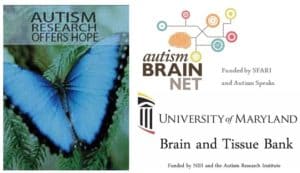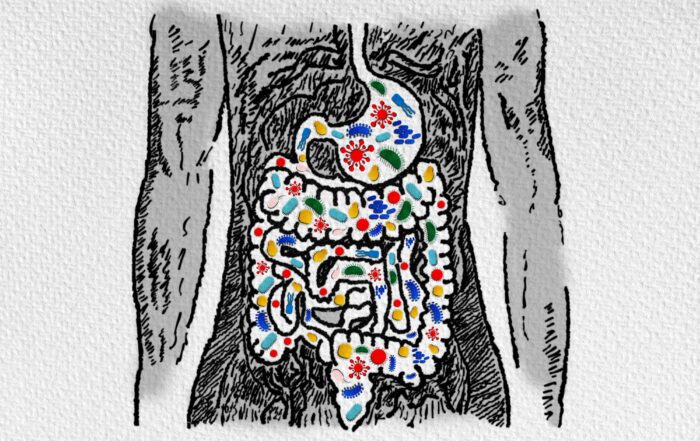
Brain and tissue banks serve the critical purpose of collecting, preserving and distributing tissue to qualified scientific investigators who are dedicated to the improved understanding of autism spectrum disorders and the development of effective treatments.
Donated tissue may provide key information necessary to help gain a better understanding of co-occurring conditions associated with autism.
Tissue donation is accepted by most major religions. All costs incurred by the donation are covered by the tissue bank. The procedure to recover tissue does not interfere with a traditional funeral service.
Parents and caregivers are urged to register their loved ones by contacting the University of Maryland Brain and Tissue Bank – sponsored by the National Institutes of Health and ARI or Autism BrainNet sponsored by SFARI and Autism Speaks:
Autism BrainNet
Toll-free: (877) 333-0999
Email Autism BrainNet
University of Maryland Department of Pediatrics
Toll free: 800-847-1539
Email University of Maryland Brain and Tissue Bank
Autism and Sleep – Research Updates
Learn research updates on co-occurring sleep disturbances and autism. To participate in the study mentioned in the presentation, see: Participate in our Research - Sleep, Cognition and Neuropsychiatry (SCAN)
Animal study reveals clues that developmental vitamin D deficiency may be associated with gut alterations in autism
Vitamin D deficiency is strongly implicated as a risk factor for autism spectrum disorders (ASD), and researchers in Australia report evidence that vitamin D deficiency during early development may increase the
New multi-national study adds to evidence linking alterations of the gut microbiome to autism
Strong new evidence linking alterations of the gut microbiome to autism spectrum disorders (ASD) comes from a new multi-national study by James Morton and colleagues. In the study, researchers in North
Editorial: Revisiting Two Lesser-Known Teaching Strategies to Enhance Speech Production in Autism
In this editorial, I would like to shed light on two methods for improving the speech production of individuals on the autism spectrum, discuss potential neurological factors that may underlie their effectiveness,
Sleep problems in infancy associated with ASD, autism traits, and social attention alterations
A new study from the United Kingdom indicates that sleep problems in infancy may help to predict later social skills deficits, autism traits, and autism diagnoses in children. Jannath Begum-Ali and
Constipation in infancy associated with higher likelihood of autism diagnosis
More evidence linking autism spectrum disorders (ASD) to gastrointestinal problems comes from a study by researchers in Taiwan and the United States, who report that ASD occurs at an elevated rate







